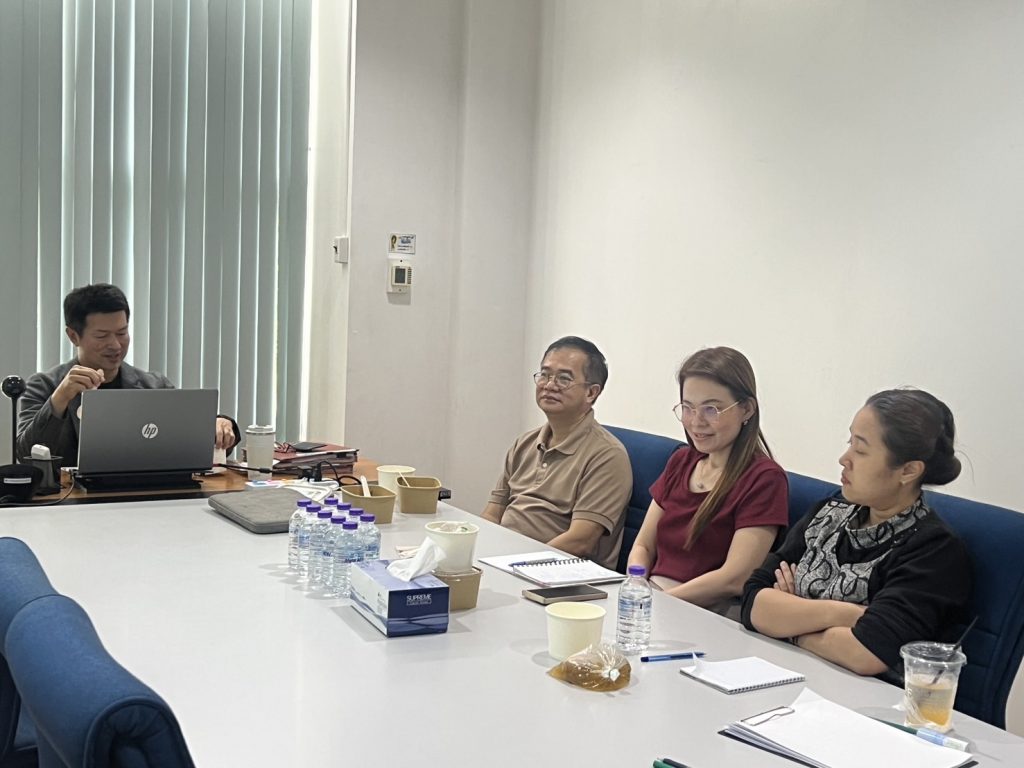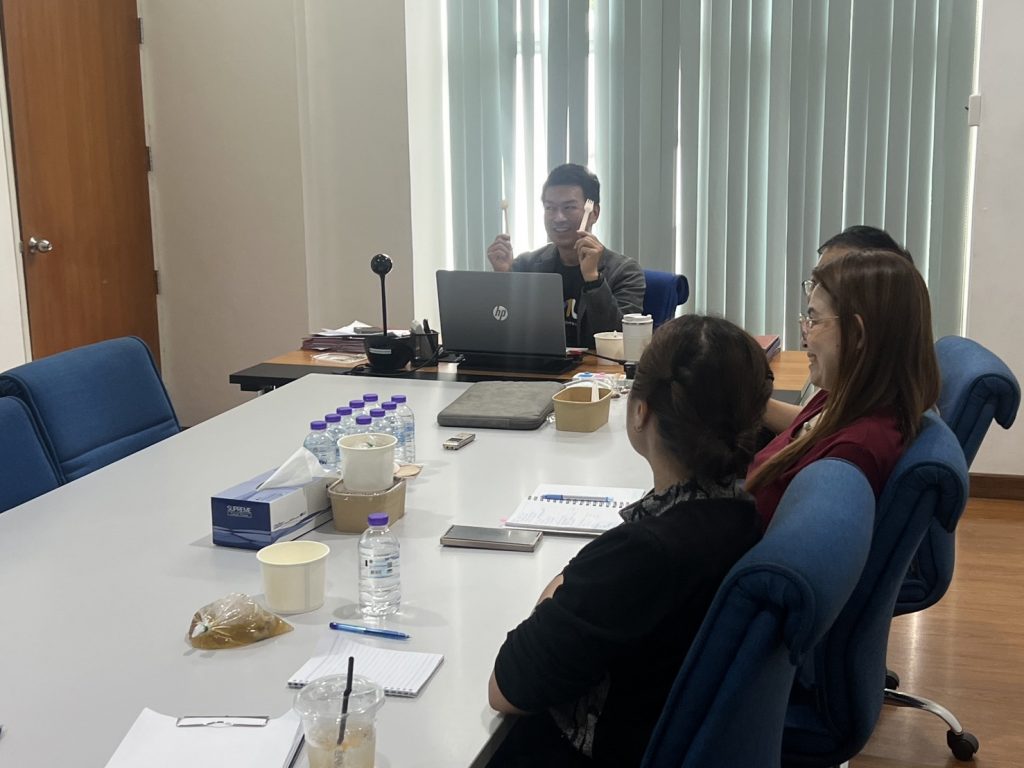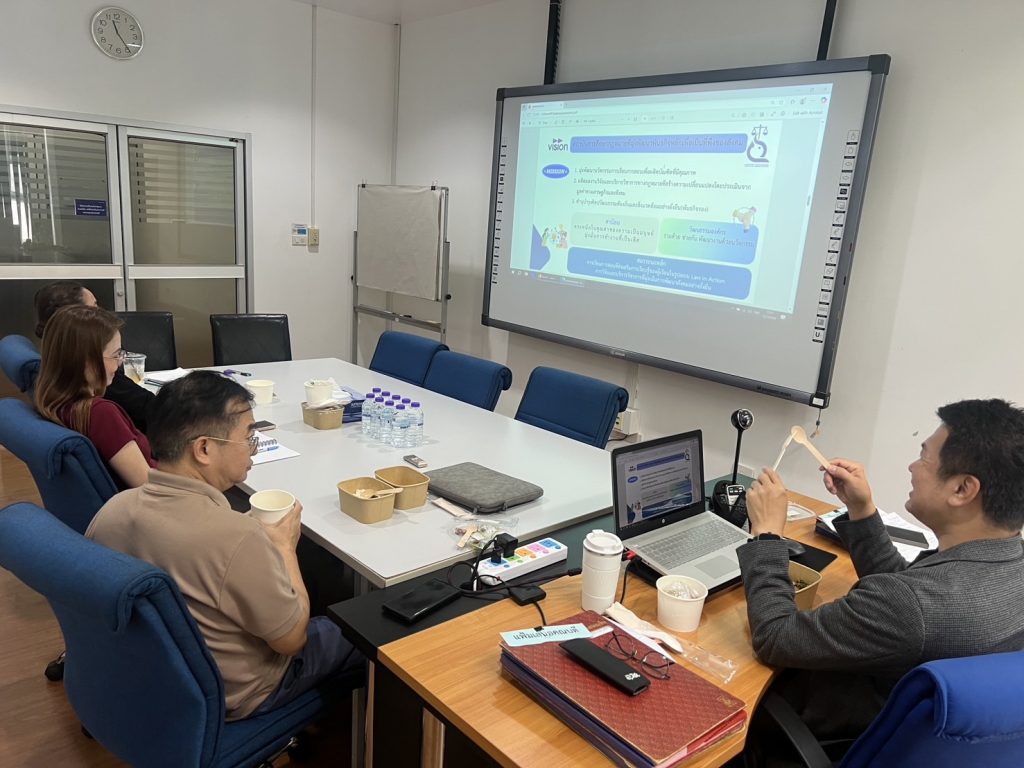
ผู้บริหาร สื่อสารเชิงกลยุทธ์กับงานแผน มุ่งเสริมบทบาทบุคลากรขับเคลื่อนองค์กรด้วยนวัตกรรมและความรับผิดชอบร่วม
ผู้บริหารคณะนิติศาสตร์ มหาวิทยาลัยเชียงใหม่ จัดเวทีสื่อสารเชิงกลยุทธ์กับบุคลากรสายงานแผน เพื่อเสริมสร้างความเข้าใจในวิสัยทัศน์ พันธกิจ และแนวทางการขับเคลื่อนองค์กรสู่ความเป็นเลิศ โดยผู้บริหารได้เน้นย้ำถึงบทบาทสำคัญของงานแผนในฐานะกลไกหลักที่สนับสนุนการดำเนินงานของคณะ ทั้งในด้านการวิเคราะห์ การประสานงาน และการเป็นที่ปรึกษาให้กับผู้บริหาร เพื่อให้ทุกภาคส่วนก้าวเดินไปในทิศทางเดียวกันอย่างมั่นคง
ภายในการสื่อสารครั้งนี้ ผู้บริหารกล่าวถึงความท้าทายที่งานแผนต้องเผชิญ ไม่ว่าจะเป็นความซับซ้อนของภารกิจ การจัดทำรายงานประเมินตนเอง (SAR) ที่มีรายละเอียดด้านตัวชี้วัดและข้อกำหนดจำนวนมาก รวมถึงการบริหารจัดการข้อมูลที่ต้องใช้ความรอบคอบและความเข้าใจอย่างแท้จริง เพื่อให้การรายงานและการวางแผนมีความแม่นยำและตอบโจทย์ตามกรอบมาตรฐาน นอกจากนี้ยังมีการย้ำว่าบุคลากรในสายงานแผนจำเป็นต้องมีความรับผิดชอบสูง เข้าใจเนื้อหางานในเชิงลึก และมีความสามารถในการนำข้อมูลมาสนับสนุนการตัดสินใจของผู้บริหารได้อย่างเป็นรูปธรรม
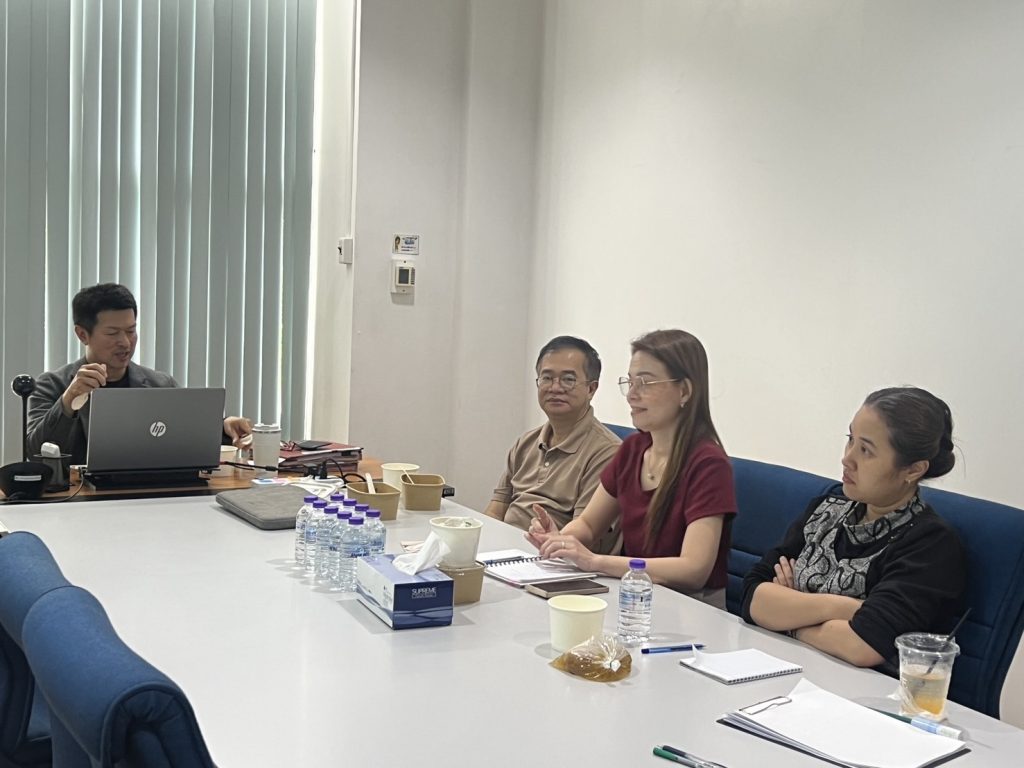
ผู้บริหารยังได้ชี้ให้เห็นว่าการเปลี่ยนแปลงทางเทคโนโลยีและนวัตกรรมที่เกิดขึ้นอย่างรวดเร็วเป็นทั้งความท้าทายและโอกาสของคณะ โดยเฉพาะการนำระบบสารสนเทศและเครื่องมือใหม่ ๆ เช่น AI ระบบวางแผน และระบบบริหารโครงการและงบประมาณ มาใช้ในการทำงาน ซึ่งแม้จะเป็นภาระที่เพิ่มขึ้น แต่ก็ถือเป็นโอกาสในการพัฒนางานให้ทันสมัย โปร่งใส และตรวจสอบได้มากขึ้น งานแผนจึงต้องพร้อมเรียนรู้และปรับตัวอยู่เสมอเพื่อรับมือกับความเปลี่ยนแปลงเหล่านี้
ในมุมมองของผู้บริหาร งานแผนไม่ได้เป็นเพียงฝ่ายปฏิบัติ แต่เป็น “ผู้พลิกโฉม” หรือ Game Changer ที่มีพลังในการผลักดันการเปลี่ยนแปลงขององค์กร การบริหารจัดการที่ดีจะเกิดขึ้นได้ก็ต่อเมื่อบุคลากรสายงานแผนตระหนักถึงคุณค่าของงานที่ทำ และเห็นโอกาสจากความเปลี่ยนแปลงแทนที่จะมองว่าเป็นภาระ สิ่งนี้จะทำให้เกิดวัฒนธรรมการทำงานที่มุ่งสู่ความเป็นเลิศ มีการเรียนรู้และพัฒนาอย่างต่อเนื่อง และพร้อมก้าวไปสู่มาตรฐานที่สูงขึ้นในทุกด้าน
ในเวทีการสื่อสารเชิงกลยุทธ์ครั้งนี้ บุคลากรงานแผนยังได้สะท้อนความคิดเห็นและอุปสรรคที่พบเจอในงานจริง เช่น ความเข้าใจที่ไม่ตรงกันในประเด็นตัวชี้วัด การสื่อสารระหว่างผู้บริหารกับผู้ปฏิบัติที่ยังมีไม่เพียงพอ ภาระงานที่มากเมื่อเทียบกับจำนวนบุคลากรที่มีเพียง 2 คน รวมถึงปัญหาการประสานงานกับหน่วยงานอื่นที่บางครั้งขาดความต่อเนื่องและไม่สามารถส่งข้อมูลได้ตรงเวลา ซึ่งปัญหาเหล่านี้ไม่เพียงแต่ส่งผลต่อประสิทธิภาพของงานแผน แต่ยังสะท้อนให้เห็นถึงความจำเป็นในการสร้างแรงจูงใจและการสนับสนุนจากทุกฝ่ายในองค์กร
ผู้บริหารได้เน้นย้ำว่า การแก้ไขปัญหาต่าง ๆ จำเป็นต้องอาศัยความร่วมมือและการสื่อสารที่ชัดเจน ไม่ใช่เพียงการสั่งการจากเบื้องบน แต่ต้องเป็นการทำงานร่วมกันอย่างใกล้ชิดระหว่างผู้บริหารและบุคลากรทุกระดับ โดยมีการนำบทเรียนและข้อสังเกตจากการทำงานในแต่ละครั้งมาปรับปรุงแก้ไข เพื่อให้กระบวนการทำงานมีความสมบูรณ์และลดข้อผิดพลาดให้น้อยที่สุด อีกทั้งยังได้ชี้ให้เห็นว่าการประชุมและเวทีการพูดคุยควรมีความหลากหลาย ทั้งในรูปแบบรวมและการแยกตามสายงาน เพื่อเปิดโอกาสให้บุคลากรได้แสดงความคิดเห็นอย่างตรงไปตรงมาและสร้างบรรยากาศที่เอื้อต่อการแลกเปลี่ยนเรียนรู้
นอกจากนี้ ยังได้มีการสะท้อนว่าคณะควรจัดกิจกรรมเพื่อสร้างความสัมพันธ์ภายในมากขึ้น เช่น การสัมมนาหรือกิจกรรมพบปะนอกสถานที่ ซึ่งจะช่วยให้บุคลากรรู้สึกผูกพันกับองค์กรและเสริมสร้างความเข้าใจซึ่งกันและกัน พร้อมทั้งตอกย้ำถึงความสำคัญของวัฒนธรรมองค์กรที่ยึดหลักธรรมาภิบาล ความโปร่งใส และการนำโดยการกระทำ (Lead by Action) ซึ่งผู้บริหารต้องเป็นแบบอย่างที่ดีเพื่อสร้างแรงบันดาลใจให้กับบุคลากร
การสื่อสารเชิงกลยุทธ์ในครั้งนี้จึงเป็นเหมือนหมุดหมายสำคัญ ที่ไม่เพียงสร้างความเข้าใจร่วมกันในทิศทางและเป้าหมายของคณะ แต่ยังทำให้บุคลากรตระหนักถึงคุณค่าของบทบาทหน้าที่ของตนเอง และมองเห็นศักยภาพที่จะสร้างความเปลี่ยนแปลงให้เกิดขึ้นได้จริง ทั้งในระดับหน่วยงานและในภาพรวมขององค์กร นับเป็นอีกก้าวสำคัญที่จะนำพาคณะนิติศาสตร์ มหาวิทยาลัยเชียงใหม่ ให้เจริญก้าวหน้าอย่างมั่นคง โปร่งใส และยั่งยืนต่อไปในอนาคต
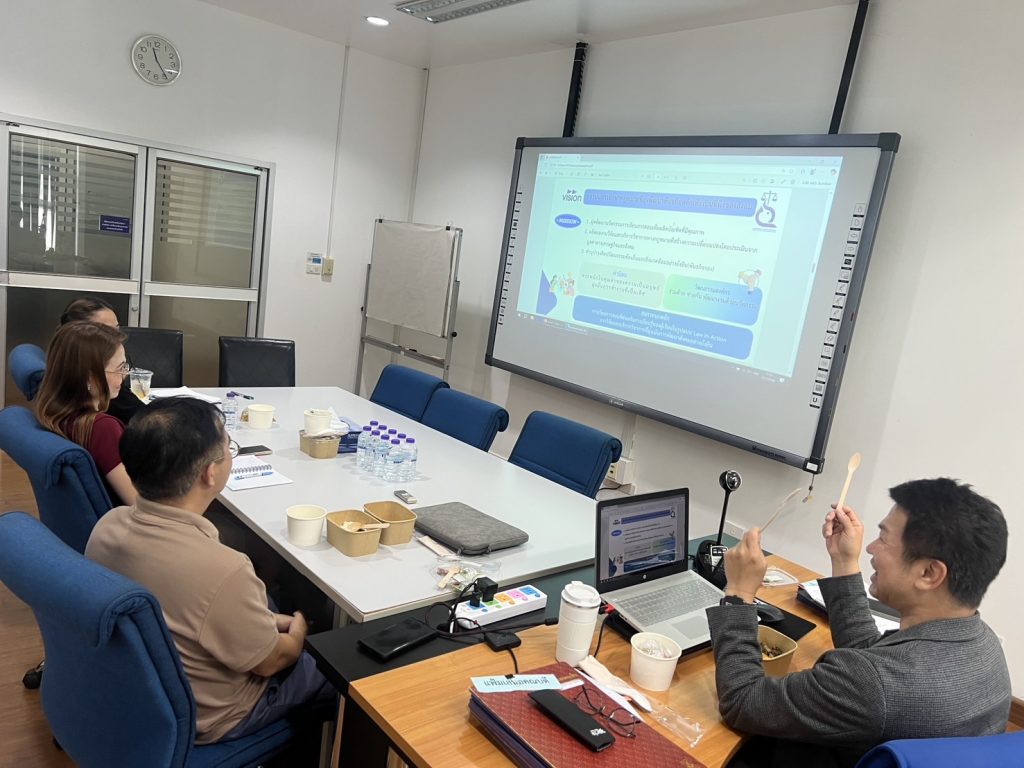
Faculty of Law, Chiang Mai University Holds Strategic Communication Forum with Planning Division Staff to Drive Organizational Excellence and Sustainability
The Faculty of Law, Chiang Mai University, recently held a strategic communication forum with its Planning Division staff, aimed at fostering a shared understanding of the Faculty’s vision, mission, and organizational direction. The forum emphasized the pivotal role of planning personnel as key mechanisms that support decision-making, coordinate across departments, and advise administrators in steering the Faculty towards its aspiration of becoming a leading legal education institution that serves as a pillar of society.
During the session, administrators highlighted the challenges facing the Planning Division, including the complexity of tasks such as preparing self-assessment reports (SAR) with their detailed indicators and requirements, as well as the need for accurate data management to ensure that planning and reporting align with academic and organizational standards. Staff members were reminded that genuine responsibility and in-depth understanding of their work are essential, as these qualities enable them to provide meaningful insights that drive the Faculty’s strategic direction.
Administrators also addressed the rapid pace of technological and innovative change, describing it as both a challenge and an opportunity. The integration of tools such as Artificial Intelligence (AI), planning applications, and project and budget management systems were noted as critical to modernizing the Faculty’s operations. While these new systems may initially appear as additional burdens, they in fact represent opportunities to enhance efficiency, transparency, and accountability. The Planning Division was encouraged to continuously learn and adapt to these innovations to remain at the forefront of organizational development.
Importantly, the role of planning staff was described as that of “Game Changers”—not merely implementers, but transformative drivers capable of reshaping organizational processes and outcomes. Administrators stressed the importance of adopting a Growth Mindset, which sees change as opportunity rather than burden, and of applying lessons learned from evaluations to continuously refine and improve processes.
The forum also provided a platform for staff to voice concerns and reflect on obstacles encountered in their daily work. Among the issues raised were challenges in interpreting performance indicators, limited communication between administrators and staff, excessive workload relative to the small number of planning personnel, and difficulties in coordinating with other units. These issues underscored the need for stronger motivation, better communication, and greater support across all levels of the organization to maximize efficiency.
In response, administrators emphasized that solutions require collaboration and open dialogue rather than top-down directives alone. They underscored the importance of learning from past experiences, making incremental improvements, and creating more diverse communication channels, including both joint and department-specific meetings, to encourage candid discussion and knowledge sharing. Suggestions were also made for more team-building activities, such as seminars and informal gatherings, to strengthen bonds among staff and reinforce organizational cohesion.
The forum concluded with a reaffirmation of the Faculty’s commitment to good governance, transparency, and leading by example. Administrators stressed that leadership behaviors shape organizational culture and that staff must feel inspired and empowered to contribute to the Faculty’s long-term success.
This strategic communication forum marked a significant milestone in aligning staff with the Faculty’s overarching goals and vision. It inspired personnel to recognize the value of their own roles and responsibilities, while also seeing the potential for meaningful change at both the departmental and institutional levels. Ultimately, this initiative represents an important step toward advancing the Faculty of Law, Chiang Mai University, into a future of excellence, accountability, and sustainable growth.
